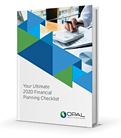Why the Market Is Up While the Economy Is Down
By Lee Korn | September 1, 2020Despite all the economic uncertainty of the moment, August shaped up to be a phenomenal month for the stock market. As of August 28th, the S&P 500 was up 7.2 percent. That’s great news for investors, but many are trying to square this booming market with the current state of the economy. With the unemployment rate still in the double digits, how are stocks going so strong? Frightened that things could go south, many of our clients are wondering if now is the time to get out of the market.

Our answer is a resounding no. When it comes to investing, it’s important to understand that the economy and the stock market are not the same thing—and pulling out now will likely mean robbing yourself of future investment returns.
The Difference Between the Stock Market and the Economy
While the stock market and the economy are intricately linked, they aren’t one in the same. Rather than being a direct reflection of one another, the stock market is more of a leading indicator of economic health. Generally speaking, it looks ahead about six to 12 months to future economic conditions, not the present situation.
History has shown us that it typically rises prior to economic growth and improvement. The inverse also tends to be true. A consistent decline usually happens before an economic slump. In fact, the markets began a downward turn in 2007—ahead of the Great Recession. In other words, the stock market and the economy do not run parallel to each another. And while we recognize that the coronavirus has shaken up the economy, that’s not an indication that the stock market is headed for a crash.
Why the Stock Market Is Performing Well Right Now
Positive market performance is certainly good news, but many investors are curious as to what’s driving it. There are a few key factors at play.
- Monetary and Fiscal Stimulus Packages: The biggest factor has to do with the Federal Reserve’s unprecedented injection of $7 trillion of liquidity to help the markets and economy, along with Congress’s massive $2 trillion relief initiatives that were included in the CARES Act. This includes the initial $600 per week boost in unemployment benefits coupled with the $1,200 that was distributed in the first round of stimulus checks. Politicians are also in the process of ironing out a second round.
- Investor Savings: With more and more people staying home and saving money, many investors are also increasing their contributions to their 401(k)s and other retirement accounts. This, in turn, is pumping more money into the stock market.
- Low Interest Rates: Another significant reason the market has been doing so well has to do with the Federal Reserve lowering interest rates. A drop in rates typically causes businesses and consumers to increase spending—which drives stock prices. The opposite is also true. This makes sense since lower interest rates make it cheaper to borrow money. It explains why the housing market is so strong right now.
- Optimism Around COVID-19 Vaccines and Therapeutics: These types of medical research developments directly impact markets. When the world got wind of promising results from a Moderna Phase 1 clinical trial in July, shares of the pharma company’s stock jumped up 10 percent.
What This All Means for Your Investment Portfolio
Market ups and downs are to be expected when investing over the long term—and staying loyal to your investment plan is the best way to set yourself up for success. In practice, that means continuing to contribute to your retirement funds as scheduled, regardless of volatility (a practice known as dollar cost averaging). The goal is to keep your emotions from influencing your investment behavior. Trying to find the best time to buy and sell is a losing game that only brings more stress and uncertainty. You’re more likely to come out stronger by staying in the market.
With that being said, we are in uncharted territory with this pandemic. Connecting with your financial advisor can help you make necessary tweaks in response to the crisis. Most advisors recommend assessing your portfolio periodically, but if your retirement timeline or employment situation has changed, it might be wise to revisit sooner rather than later. Something as simple as rebalancing your portfolio could be all that’s necessary to provide peace of mind so that you feel confident in your investment plan. Opal Wealth Advisors is offering virtual appointments so you can attend from the comfort of your home.
Be a Smart Investor
Stay up-to-date with industry-leading information and news delivered straight to your inbox.
Get our timely insights delivered to your inbox (Blog)
Please remember that past performance may not be indicative of future results. Different types of investments involve varying degrees of risk, and there can be no assurance that the future performance of any specific investment, investment strategy, or product (including the investments and/or investment strategies recommended or undertaken by Opal Wealth Advisors, LLC [“OWA]), or any non-investment related content, made reference to directly or indirectly in this commentary will be profitable, equal any corresponding indicated historical performance level(s), be suitable for your portfolio or individual situation, or prove successful. Due to various factors, including changing market conditions and/or applicable laws, the content may no longer be reflective of current opinions or positions. Moreover, you should not assume that any discussion or information contained in this commentary serves as the receipt of, or as a substitute for, personalized investment advice from OWA. OWA is neither a law firm, nor a certified public accounting firm, and no portion of the commentary content should be construed as legal or accounting advice. A copy of the OWA’s current written disclosure Brochure discussing our advisory services and fees continues to remain available upon request or at www.opalwealthadvisors.com. Please Remember: If you are a OWA client, please contact OWA, in writing, if there are any changes in your personal/financial situation or investment objectives for the purpose of reviewing/evaluating/revising our previous recommendations and/or services, or if you would like to impose, add, or to modify any reasonable restrictions to our investment advisory services. Unless, and until, you notify us, in writing, to the contrary, we shall continue to provide services as we do currently. Please Also Remember to advise us if you have not been receiving account statements (at least quarterly) from the account custodian.



